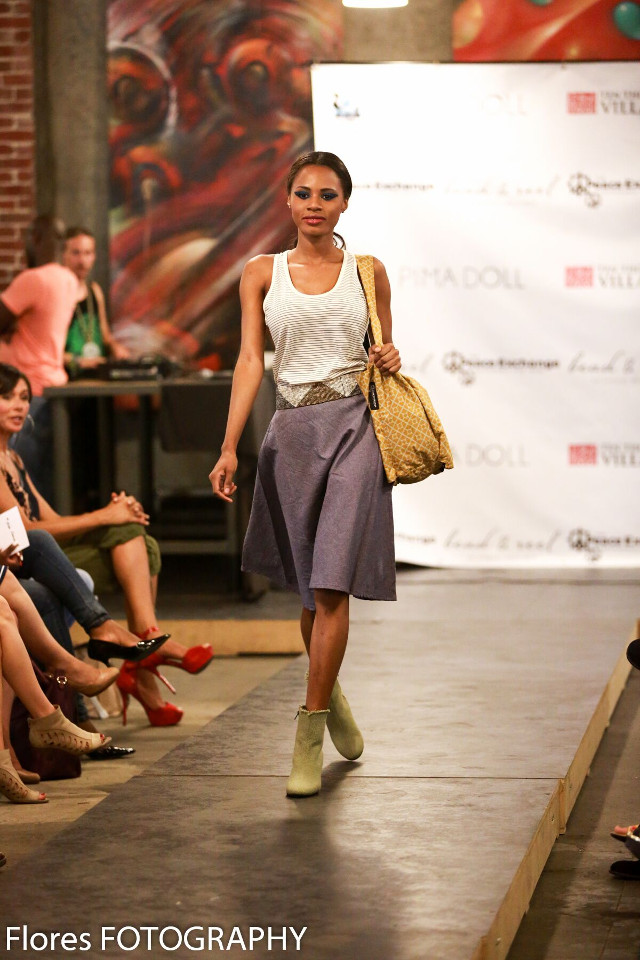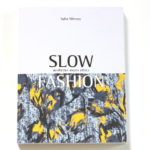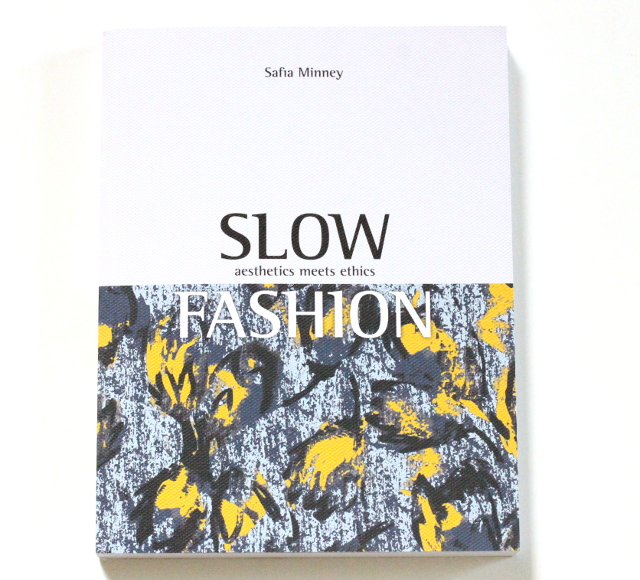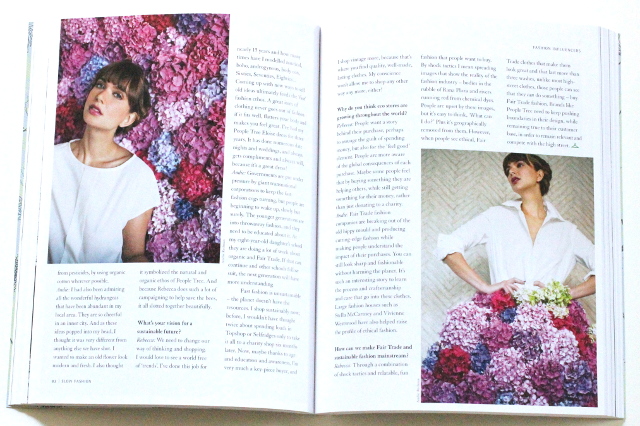

(Bead & Reel’s 2nd Annual Fair Trade Fashion Show Fundraiser is Saturday, July 16th. Photo courtesy Bead & Reel.)
Bead & Reel, the lovely ethical boutique founded by Hollywood costume designer Sica Schmitz, is holding its second annual Fair Trade Fashion Show Fundraiser in Los Angeles this Saturday, July 16th. Partnering with The Peace Exchange, a fair trade non-profit, the show will feature pieces by ethical designers including Passion Lilie, one of my favorite lines. If you’re in the area, it’s a wonderful opportunity to see ethical fashion in person and support a worthy cause. Tickets can be purchased here and all proceeds benefit The Peace Exchange’s non-profit sewing centers in the Congo.
***
Here are some other ethical tidbits I’ve found interesting lately.
Björk will wear a 3D printed dress, first seen at New York Fashion Week, to her upcoming shows.
At the Fork: A Film about Husbandry and Wife is a study of the production and use of animals in the United States, profiled by the filmmaker, an omnivore, and his wife, who is vegan.
This Los Angeles-based company refashions leftover beer filter cloth into vegan handbags.
R.L. Linden, a gorgeous natural beauty brand, is currently expanding their business and has launched a crowdfunding campaign.
Today was my son’s birthday and I woke up to the news of Philando Castile’s death, less than a day after Alton Sterling was killed by police. We opened presents and ate donuts while two more families are preparing to bury their sons. It’s sickening, and heartbreaking, and so many of us feel powerless and frustrated in the face of this epidemic of blatant racism and hate. It’s three days after the Fourth of July, and our country is far from united. Black men, women, and children aren’t safe on our streets, and the truth is, they never were.
I don’t have any answers, but I believe it helps to talk and write about the injustices we see and read about. Many bloggers and social media activists are voicing their concerns, and I think it’s valuable to share your own thoughts and to speak up, too. If you’re concerned and angry about the murders of so many Black people at the hands of law enforcement, talk to your friends and family. Call and email your politicians and consider ways in which you can volunteer your time. Pay attention in your neighborhood and city and find ways to make things a little better. If we can learn to love our neighbors and look out for each other, that love will ripple and flow, and maybe, just maybe, make a difference.
My heart is breaking and I’ve cried for these men I never met, for their mothers, and their girlfriends, and their children. Their stories are not my own, and they deserve the chance to speak and be heard. Listen. Watch the videos that are posted, as difficult as that might be. Because Black Lives Matter.
Here are some posts I found helpful today:
Advice For White Folks in the Wake of the Police Murder of a Black Person by Justin C. Cohen.
This Is What White People Can Do To Support #BlackLivesMatter by Sally Kohn.
Black Exhaustion by Pilot Viruet.
Black Lives Matter by Grace Bonney of Design Sponge.
On Teaching and the Murder of Alton Sterling by Laurie White.

People Tree, the British-based fair trade clothing company founded by Safia Minney, is one of my favorite ethical brands. The pieces are gorgeous and incredibly well-made, with classic tailoring that lasts for years. So when I read that Minney was launching a Kickstarter campaign to fund a book about slavery in the fashion industry, I wanted to support it immediately. The project was successfully funded, and Safia and her team have begun work on the project, which should be published early next year.
In the meantime, my thank you gift, a copy of Minney’s first book, Slow Fashion, arrived last week and I’ve been reading through it ever since. If you watched The True Cost, then you’re familiar with Minney and her efforts to create a completely transparent supply chain within her company. This book expands upon that idea and also highlights important members of the ethical fashion community, social entrepreneurs, and many “eco concept stores” across the world that are working from within to change the face of fashion. Minney profiles bloggers, models, writers, and filmmakers who are furthering the conversation, some of whom are profiled in the documentary, too.
Slow Fashion is thoughtfully designed and full of beautiful photographs, mostly taken by Minney herself. It’s a stylish coffee table book and fair trade guide rolled into one, the kind of thing you want to leave out for guests so they can peruse it leisurely while learning more about ethical fashion. I’m looking forward to following the blogs and stores profiled in Slow Fashion, and I’ll be anxiously awaiting the publication of Slave to Fashion in 2017.


